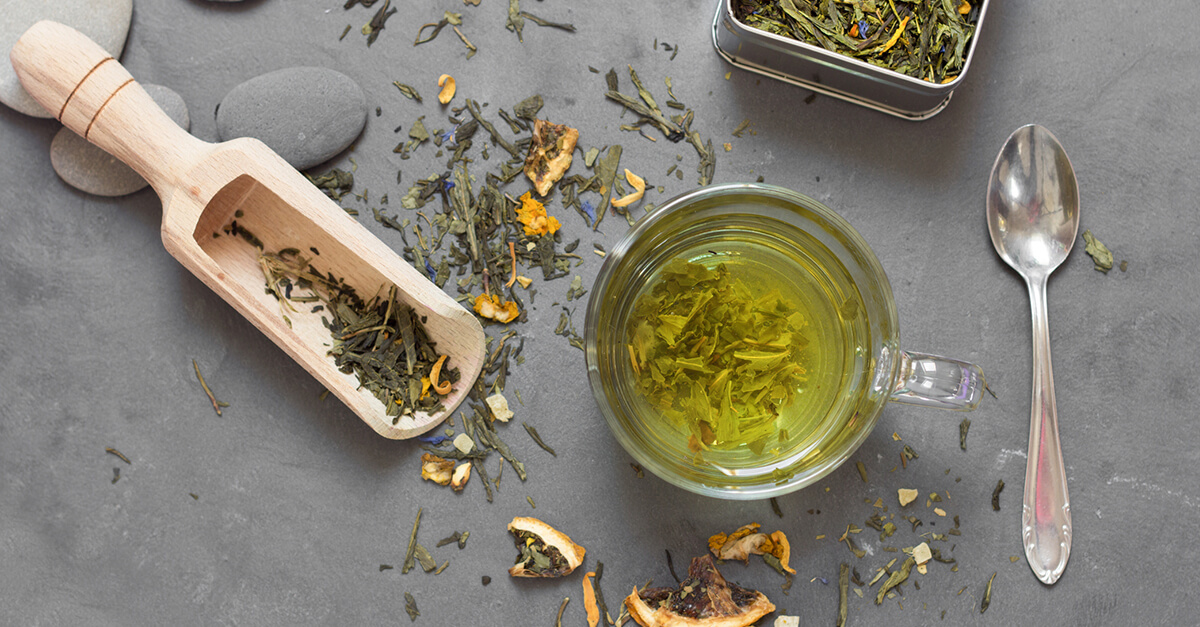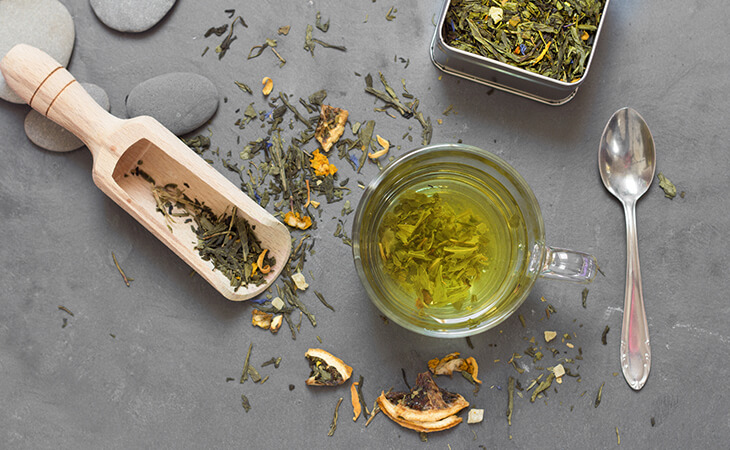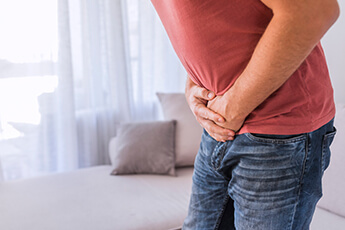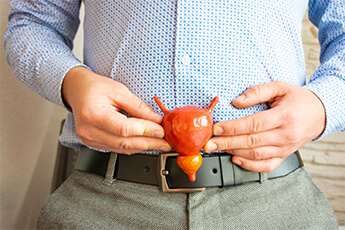Best foods for improved prostate health

Many factors play a role in whether you develop prostate cancer and the overall health of your prostate. This male reproductive gland keeps sperm healthy. When the gland gets bigger or swollen (enlarged prostate or prostatitis) or cancer develops, you may experience urinary issues and sexual problems like erectile dysfunction.

How does your diet affect prostate health?
Research indicates that what you eat impacts your prostate health. Eating certain foods and avoiding others, combined with regular physical activity, may lower your odds of getting prostate cancer. And if you already have prostate cancer, eating healthy may slow the spread and progression of the disease. You may be less likely to develop metastatic prostate cancer (prostate cancer that spreads to the bones or organs) and improve your overall prognosis.
Eating well can also help you achieve and maintain a healthy weight. Excess fat contributes to about 5% of all cancers in men, according to the American Cancer Society. And obesity increases your risk of having an aggressive prostate cancer that’s more difficult to treat and more likely to spread. You also have a greater chance of prostate cancer coming back after treatments (a cancer recurrence) when you’re overweight.
Carrying extra weight also puts pressure on the prostate gland. The gland can become inflamed and swollen. An enlarged prostate (also called benign prostatic hyperplasia) or inflamed prostate (prostatitis) can cause urination and sexual problems. You may pee more frequently or have painful urination. Some men are unable to get or maintain an erection (erectile dysfunction).
What foods improve prostate health?
For improved prostate health, try these healthy eating tips:
load up on vegetables
fill up on fruits
eat more fish and less red meat
drink green tea and coffee
pile on legumes (beans, peas, and lentils)
Load up on vegetables
The federal government recommends that most adults eat 2 to 3 cups of vegetables every day (depending on your age and gender). But less than 1 in 10 people get the recommended amount. Vegetables are rich in vitamins, minerals, and antioxidants that fight inflammation and cancer. These vegetables, in particular, are good for the prostate.
Cruciferous vegetables like Brussels sprouts, broccoli, cabbage, bok choy, and kale are high in phytochemicals that may prevent the growth of cancer cells.
Carrots and sweet potatoes contain beta carotene, an antioxidant that supports healthy cells and helps the immune system fight inflammation.
Mushrooms have beta glucan compounds and lectin proteins that fight cancer cells.
Peppers and jalapenos have capsaicin, a chemical that may slow cancer cell growth.
Fill up on fruits
The recommended daily amount of fruit per day is 1½ to 2 cups. Only about 12% of adults eat this amount. When you’re at the grocery store, try buying more of these fruits, which seem to help the prostate:
Berries of all types have anthocyanins, a powerful cancer-fighting antioxidant.
Citrus fruits like lemons and oranges have flavonoids and other compounds that protect against free radicals that can cause cell damage.
Grapes have resveratrol, a phytochemical that fights inflammation.
Pomegranates and pomegranate juice may prevent a prostate cancer recurrence.
Tomatoes (the fruit that we think of as a vegetable) are high in lycopene, a phytochemical that attacks free radicals and protects against cell damage. Your body will absorb lycopene from tomatoes better if you cook the tomatoes or eat products like tomato sauce, stewed tomatoes, or tomato juice.
From the community: “Cooked Tomatoes are one of the best source of Lycopene, but I understand that it's not Lycopene alone, but other micronutrients in tomatoes and other fruits help fight cancer. Also sticking to Organic fruits and Vegetables is recommended. I also take a glass of pomo juice every day. On the other hand, I read that Lycopene supplements actually feed cancer cells.” – Inspire member
Eat more fish and less red meat
Cold-water fish like salmon, trout, and sardines have healthy fats that don’t trigger inflammation in the way that saturated animal fat from beef, pork, and lamb does. Research shows a link between diets high in red meat, animal fats, and dairy products and prostate cancer.
Drink green tea and coffee
Green tea, which is brimming with antioxidants like catechins and flavonoids, may slow or prevent the onset of prostate cancer. A review of studies found that men who drank seven cups of green tea every day were less likely to get prostate cancer. Other studies suggest that drinking 1 to 2 cups of coffee each day may lower prostate cancer risk.
From the community: “I also am a fan of green tea and have several cups a day. However I think it is also important to keep it in perspective. I was drinking 4 cups of green tea a day for several years right up to my diagnosis of a metastasized Gleason 9 PCa. Green tea may help some, but it is not a miracle preventative or cure.” – Inspire member
Pile on legumes (beans, peas, and lentils)
Legumes, which include beans, peas, and lentils, contain isoflavones. Studies show that this phytoestrogen chemical may lower your risk of prostate cancer. Soybeans or soy foods like soy milk and tofu are loaded with isoflavones. Other good sources include chickpeas, split peas, peanuts, and flaxseed.
Can you take supplements for improved prostate health?
Nutrition experts always recommend getting vitamins and minerals from foods — not supplements — as much as possible. Studies on the benefits of supplements for prostate health are mixed.
While earlier studies indicated that selenium (a mineral) and vitamin E reduced prostate cancer risk, the Selenium and Vitamin E Cancer Prevention Trial (SELECT) found a slightly higher risk of prostate cancer in men who took only vitamin E supplements. Men who took vitamin E and selenium supplements had no statistical difference, while those who took selenium had an increased risk of an aggressive prostate cancer if their selenium levels were already high. Doctors now advise against taking vitamin E or selenium.
Calcium supplements may also be a bad idea because too much calcium in your diet may contribute to prostate cancer. If you have prostate cancer or are at high risk for prostate problems, you should talk to your doctor before taking any supplements.
From the community: “Regarding Vitamin E I have seen many, many references that say to avoid Vitamin E once one has a prostate cancer diagnosis. Apparently Vitamin E can make prostate cancer worse, especially in those with a high Gleason score. My urologist and urologic oncologist both agree with this view. Further, my retinal surgeon wanted me to take the AREDS vitamin formula which contains E. I mentioned my prostate cancer to him and he responded that I should NOT take anything with E in it.” – Inspire member
SOURCES
Can prostate cancer be prevented? American Cancer Society. June 2020.
Does body weight affect cancer risk? American Cancer Society. June 2020.
Explaining the link between prostate cancer and obesity. Cedars-Sinai. September 2017.
Only 1 in 10 adults get enough fruits or vegetables. Centers for Disease Control and Prevention. November 2017.
10 diet and exercise tips for prostate health. Harvard Health Publishing. January 2020.
Prostate cancer prevention: Ways to reduce your risk. Mayo Clinic. September 2020.
Guo Y, et al. Green tea and the risk of prostate cancer: A systematic review and meta-analysis. Medicine (Baltimore). March 2017.
Prostate cancer, nutrition, and dietary supplements (PDQ®) — Patient version. National Cancer Institute. June 2021.
Selenium and Vitamin E Cancer Prevention Trial (SELECT): Questions and answers. National Cancer Institute. July 2015.
Five foods to protect your prostate. Prostate Cancer Foundation.
Parikesit D, et al. The impact of obesity towards prostate diseases. Prostate International. March 2016.
He J, et al. Phytoestrogens and risk of prostate cancer: a meta-analysis of observational studies. World Journal of Surgical Oncology. 2015.
Diet and nutrition. ZERO — The End of Prostate Cancer.
Disclaimer
This content is for general informational purposes only and does not necessarily reflect the views and opinions of any organization or individual. The content should not be used as a substitute for professional medical advice, diagnosis, or treatment. Please consult your healthcare provider about any questions you may have regarding a medical condition.




